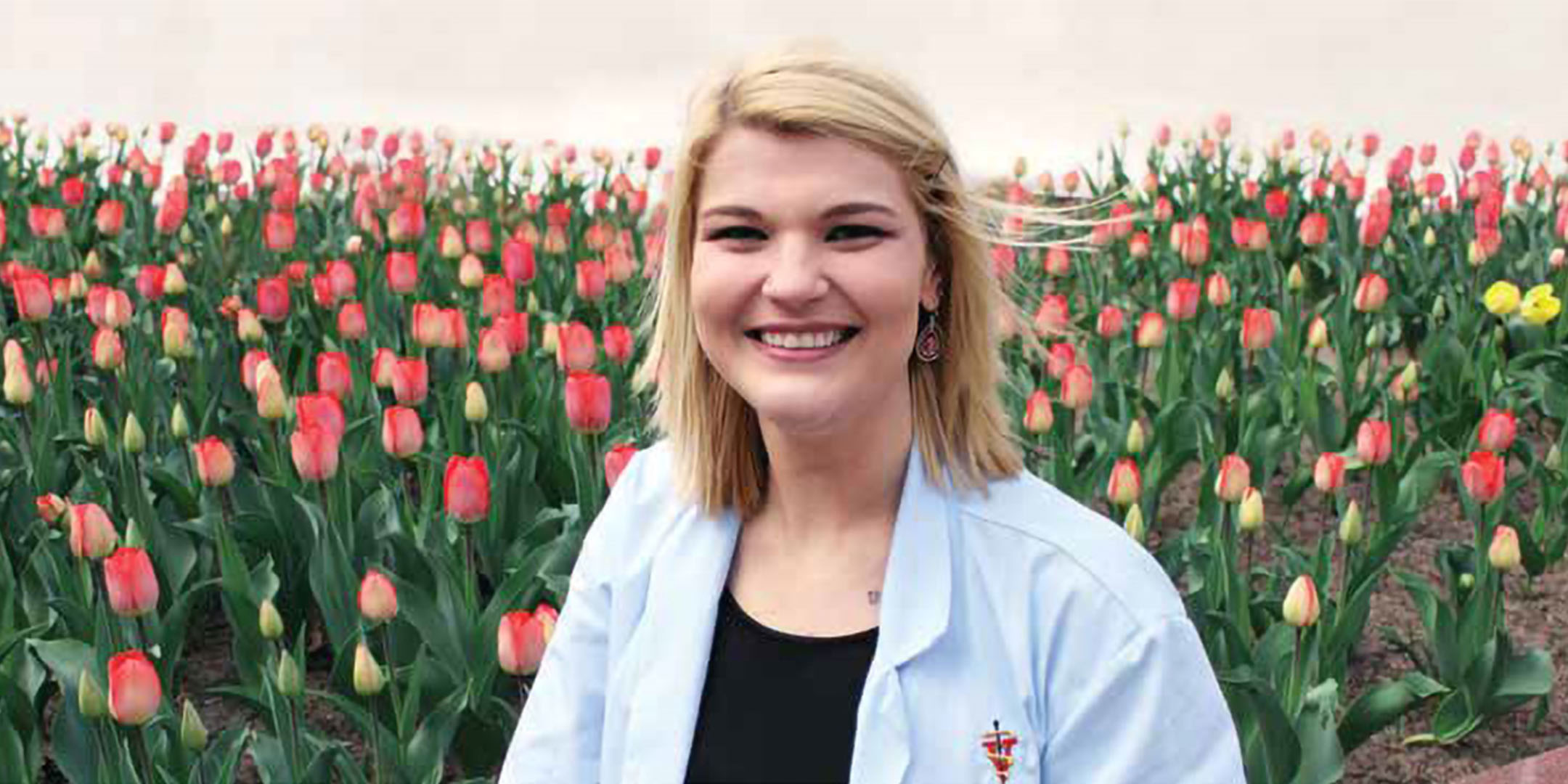
The UW School of Veterinary Medicine is building a more inclusive environment for its students’ success. The goal is to eliminate financial and social barriers that have historically deterred students from marginalized communities from pursuing a veterinary degree at the UW. Through generous contributions to the Raimey-Noland Campaign, donors are providing invaluable and impactful support for this mission.
In 2020, professor of virology Kristen Bernard MS’92, PhD’95 and her husband, Rick Ezell, contributed a generous lead gift to establish the Veterinary Medicine Diversity, Equity, and Inclusion Scholarship Fund.
“Diversity is so important to bring together different backgrounds and ideas to solve problems facing our society and to better serve our clients and animal patients,” explains Bernard.
Since then, students like Emma Sweet DVMx’22 (pictured above) and Erika Kwong DVMx’22 are receiving financial assistance while also experiencing a newly inclusive culture. Sweet, the inaugural recipient, believes that meaningful advancement is born out of purposeful action, and that kind of action is essential to increasing access to this vocation.
“Veterinary medicine, as a whole, is a field that’s not very diverse,” shares Sweet. It’s one of the whitest professions there is, statistically speaking. And, right now, it’s one of the few professions that is predominantly female. If I make it big one day, I hope to set up my own scholarships.”
Removing obstacles for underrepresented populations can have an empowering effect, giving these students the confidence to address social disparities within the school and the profession as a whole. And the progress is undeniable. In 2020–21, 100 percent of scholarship applicants received aid, the school was able to offer 705 scholarships and student awards for a combined $2.13 million in student support, and the class of 2025 is the most diverse in the history of the school.
